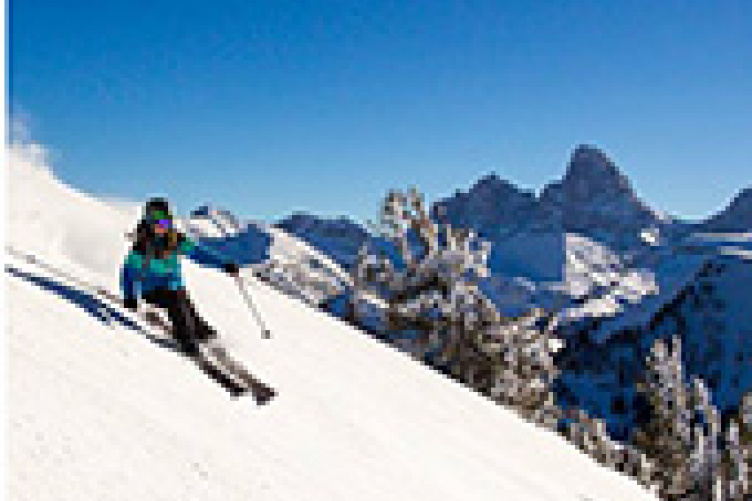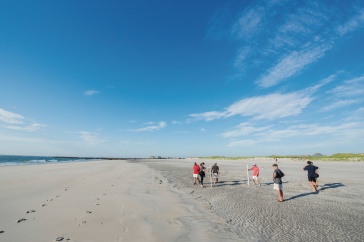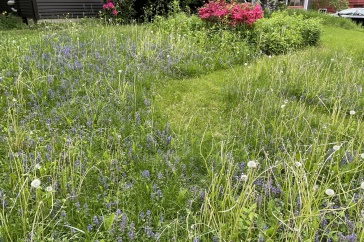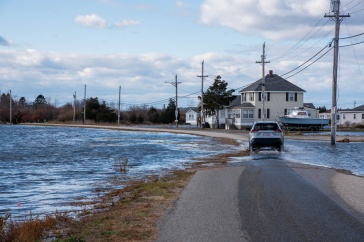
The rate of winter warming has tripled in the U.S. since 1970. The northern hemisphere has lost one million square miles of spring snowpack in the last 50 years. As many as half the ski resorts in the Northeast may be forced to shut down within the next 30 years.
A UNH forum that united two core New Hampshire values—green living and white snow—offered a sobering look at the future of the ski industry through the eyes of climate scientists. But luckily, it also emphasized the way snow sports lovers can take action on climate change.
Powder magazine editor Porter Fox, author of the book DEEP: The Story of Skiing and the Future of Snow, spoke with UNH research associate professor Cameron Wake and an engaged MUB audience of students and visiting snowsports lovers. Sponsored by student groups SEAC (Student Environmental Action Coalition) and the New Hampshire Outing Club and the UNH Sustainability Institute, the event aimed to mobilize skiers’ passion for trails and glades to save the snow that fuels their sport.
“It’s important, to make climate change relevant and accessible, to connect it to something that people are passionate about,” says SEAC coordinator Giselle Hart ’17. “Winter sports and skiing are so big in New England.”
For his book and the short film that he showed Monday evening, Fox travelled 2,000 miles to mountain communities around the world. “I wanted to talk to people who were living in the snow, who actually had empirical evidence of what was happening,” he says. The skiers and mountaineers told him what climate scientists like Wake know: “It’s just not as cold as it used to be.”
Wake, who is a research professor at the Institute for the Study of Earth, Oceans, and Space (EOS), director of Climate Solutions New England, and the UNH Josephine A. Lamprey Professor in Climate and Sustainability, is also a skier and pond hockey player. Those credentials, he joked, were more relevant to the discussion than his scientific ones.
Wake urged individual, grassroots activism, starting with “changing your lightbulbs” then moving to talking about the impacts of climate change throughout our communities. “Do not look to your government to solve this problem,” he says. “It’s about people.”
Fox hopes to reach people whose livelihoods and passions depend on steady snowfall. With climate change, “there’s a lot more at stake than skiing,” he says. “We start with skiing then expand the conversation from there.”
-
Written By:
Beth Potier | UNH Marketing | beth.potier@unh.edu | 2-1566



















































